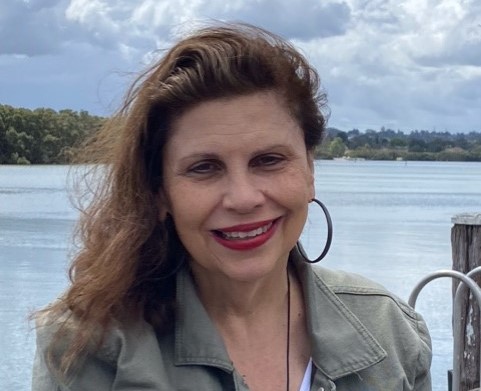
Margi was shocked to learn she had chronic heart disease and was at risk of dying before she could enjoy her retirement.
In November 2022, Margi was having the routine tests prior to a hip replacement.
Up until this time, Margi who is retired and in her mid-60s, says that her health had been relatively good. Her mother trained as a doctor who ensured Margi and her brother grew up eating a balanced diet, and as they grew up in rural NSW, they had an active lifestyle.
Health wise, her blood pressure and cholesterol levels were a little elevated, but they did not require medication. So, she was surprised when the ECG test discovered she had atrial fibrillation (AF) which is a type of arrhythmia where your heart has an irregular beat, as she didn’t have any worrying symptoms.
Coronary heart disease is the leading single cause of death in Australia.
During the consultation with her cardiologist, she saw a picture on his computer of a heart with a series of circles drawn around narrowed arteries. Feeling sorry for the poor heart condition of this person, she remarked that it was a confronting picture. “Yes, it is,” he responded. “Unfortunately, it is your heart.”
“It was like I was having an out of body experience,” said Margi who was shocked by her diagnosis. “I was thinking how could this be happening to me. This isn’t what I thought my retirement would be.”
Further testing and scans including an angiogram at Royal North Shore Hospital (RNSH) which visualises the blood vessels in the heart chambers, showed her coronary artery disease was more complex. Margi’s cardiologist advised her she didn’t have the option of having stents inserted to open the arteries and she required urgent major open-heart surgery.
Under the care of cardiothoracic surgeon Dr John Brereton, Margi underwent surgery for a triple coronary artery bypass graft (CABG) where a new path is created for blood to flow around the blockage, using veins harvested from both her leg and forearm.
To regulate her arrhythmia, Margi required further surgery where a permanent pacemaker was implanted in her chest just below her collarbone. She is amazed her pacemaker has the technology to send data through her home transmitter so her doctor can monitor her progress remotely.
Margi was a patient in the critical cardiac ward for 12 days and had a total of eight hours of surgery.
“The staff were amazing,” said Margi. “They were reassuring, positive and always let me know what was going on. I was in the intensive care unit (ICU) for a few days post-surgery and the nursing staff supported my family and answered any questions or concerns they had.”
Following a few months of recovery at home, Margi commenced cardiac rehabilitation at RNSH where a team of cardiac nurses, exercise physiologists and other allied health provides important ongoing care and support with the recovery process.
“We care for and treat patients with diagnosed heart conditions such as heart attack, irregular heart rhythms, post heart surgery and cardiac stenting,” said nurse manager, Maura Farrall. “Our aim is to provide our clients with a holistic approach to their rehabilitation with a combination of exercises, education and assessment.”
Margi attended a weekly exercise class at cardiac rehab unit at RNSH, and she also completed a series of online education modules which included lifestyle, medication and diet.
She was grateful she was given the post-surgery support at cardiac rehab as she felt the benefit in a very short time. The programme was tailored to her, and the staff supervise their clients completing their exercises, which are transferable so they can continue to keep active at home.
During the online sessions, she openly shared her story with others who have also had issues with their heart health and had concerns.
“It can be difficult to talk about as it’s not a pleasant time and some people feel they are the only ones going through it. But I wanted to share my experience, so they don’t feel like they are going it alone, and I’ve made some good friends along the way.” said Margi with pride.
She insists it was a blessing her heart disease was discovered when it was, as many people find out when it’s too late. Margi believes it’s not only a lifestyle change but an attitudinal change to your health as well.
“Women present more subtle heart attack symptoms such as shortness of breath, nausea, fatigue and pain in the jaw and back, whereas men often experience the classic chest pain,” said Maura. “Knowing the symptoms and risks unique to women, as well as eating a heart-healthy diet and exercising, can help protect you.”
Margi believes that it’s important to give back and wants to see further research and education into heart disease.
As there is less stress on her heart, Margi says she has renewed energy. She feels she has a new lease on life and is looking forward to more movement following her hip replacement – and finally enjoying a non-eventful relaxing retirement in the Southern Highlands of NSW.
If you would like to support cardiovascular research and education through the cardiology department, please make a donation.

